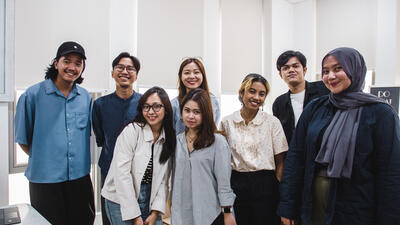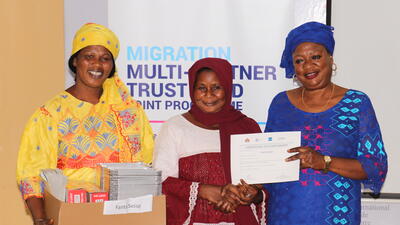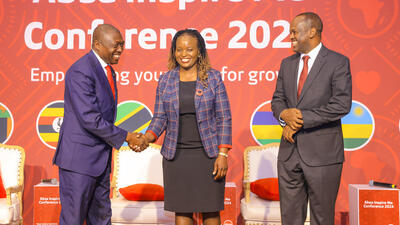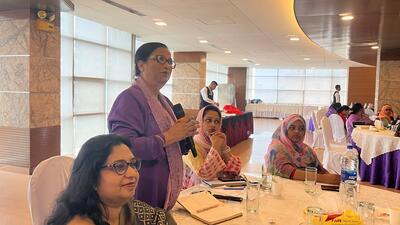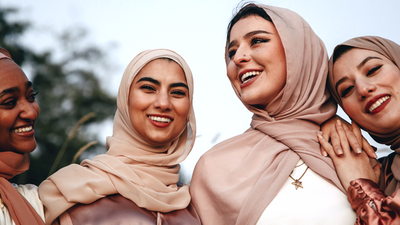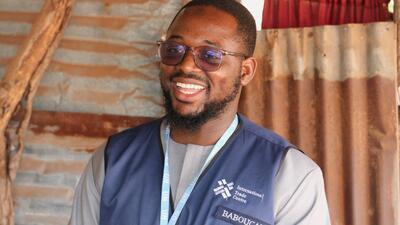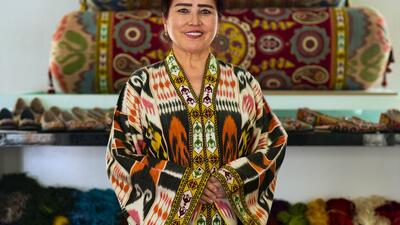Women and minority procurement: Atlanta's approach
Nearly 40 years ago, the government of Atlanta adopted sweeping and bold economic development policies to stabilize the city’s economy and expand business and job opportunities. Then-mayor Maynard Jackson, Jr., the first African American mayor of a major United States city, championed the Equal Economic Opportunity Programme, opening municipal procurement to the more than half of the business population previously locked out of city business due to discriminatory policies and practices based on race and gender. His leadership changed the economic fabric of the city for black people, other minorities and women.
Between 1974 and 1981, the proportion of contracts awarded by the city to women and minorities increased from a meagre 1% to an average of 24%, worth more than US$ 600 million. In those eight years, nine pieces of legislation designed to ensure minority and female business participation were adopted by the city council, including a law requiring 25% of projects to be filled by minority- and women-owned firms. This has led to, conservatively, US$ 2.5 billion in contracts awarded to women and minority businesses since 1974.
As greater Atlanta has grown to over 5 million people, it has become a model for American cities, states and federal agencies. Women and minorities have participated in the growth of business enterprises, increasing their wealth and expanding their capacity and experience, and the city’s procurement policies laid the foundation for this success. The data speak for themselves.
The United States Census reports that Georgia has led the country in the number of women-owned businesses over the past 14 years. The number of women-owned businesses in the state nearly doubled between 1997 and 2011, according to the recent State of Women-Owned Businesses Report. Georgia now has an estimated 287,500 women-owned businesses, ranking it sixth in the United States, up from tenth in 1997 when it had 145,576. According to the National Association of Women Business Owners, Georgia ranks first in number, employment and sales for women-owned firms.
Mayor Jackson set the stage for hundreds of minority and female entrepreneurs to participate in thousands of business transactions, to employ thousands of people, to grow their businesses and to contribute to the economic health of the city, state and nation. These men and women are among the most active civic leaders in the state, contributing their resources, money and talent to charity, politics and civic life. The Atlanta model reverses the centuries-old history of discrimination against women and African Americans in business and seeks to empower them to succeed and contribute as employers, taxpayers and civic leaders.
Supporting women- and minority-owned BUSINESSES through procurement and policy: What worked?
1) Sustained commitment - Every Atlanta mayor and city council since 1974 has championed the programme. This lasting commitment has led to dramatic change.
2) Compelling vision - The City of Atlanta defined an inspiring vision of inclusion that was easy for citizens to understand and embrace. Creating fair, open and transparent competition is consistent with the commonly held view that women and minorities face discrimination in employment and business.
3)Strong business rationale - Atlanta developed a business case for expanding the pool of vendors to increase competition in bidding and to enhance the quality of the bids. Openness creates competition and innovation, and opportunity produces excellence.
4) Well-conceived programme - Atlanta’s procurement model is effective, inclusive and practical. It seeks a fair distribution of economic opportunity among groups in the larger community, incorporates innovative approaches such as joint ventures between established businesses and start-ups, defines a clear process from vendor selection to certification and monitoring, and establishes a reporting process to keep the public, mayor and council informed.
5) A high-profile test case - In the mid-1970s, the US$ 400 million Atlanta International Airport was designed and built with over 20% of the work performed by women and minority contractors. The city then expanded the programme to consider every contract as a prospect for the Equal Economic Opportunity Programme. Public acknowledgement of the programme's success energized businesses and galvanized Atlanta's reputation for opening the doors to women and minority businesses in municipal procurement.




